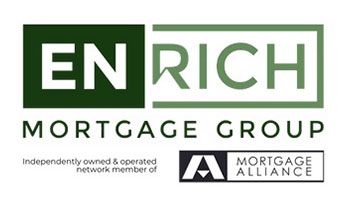How Mortgages Have Changed in Canada Due to COVID
The COVID-19 pandemic has had an impact on nearly all facets of life in Canada and sectors of the Canadian economy, including the real estate industry.
There has been a significant change in the construction rate, the number of home sales, and open houses across the country. The mortgage application process has also followed suit. On top of this, the pandemic saw interest rates drop to historic lows, although the Bond Yield is now increasing quickly post-election causing fixed rates to rise, variable rates still have large discounts, so let’s chat about how this can affect you and your home.
Before COVID-19
Before the COVID-19 pandemic hit, mortgage lenders vetted potential clients using the lenses of credit, income, and property. Even though this hasn't really changed, how mortgage lenders are considering these three aspects has changed significantly.
For instance, before the pandemic, lenders would ask for a pay stub from about 60 to 90 days before the closing date. The same lenders are now asking for pay stubs within 14 days. This simply means you need to prove to the lenders that the pandemic has not affected your income. Otherwise, you risk not being approved.
During the Pandemic
Canada’s Housing Market
Canada’s housing market experienced supply chain shortages at the beginning of 2020 but began to rebound in April and May. By the time November rolled around, we had seen record numbers of sales across the country.
The shock from the virus on the housing market was almost instantaneous as the government took a move to reduce face-to-face activity which is pivotal in the real estate industry.
Housing transactions disappeared overnight, people preferred to hold their money instead of spending it on real estate, and it became difficult to assess whether the housing prices are a clear depiction of what is happening in the real estate market.
All these conditions, coupled with inactivity in the property market, caused a reduction in the demand for property, further driving down real estate values in early 2020.
However, as we moved throughout the year, home sales began to recover in many major cities across the country. One reason for this was the Bank of Canada’s move to reduce interest rates from 1.25% to 0.25%.
In Calgary, city officials reported a 52% rise in sales for detached properties, and prices for suburban homes were up 10%.
As the market rebounded, the Calgary Real Estate Board reported record numbers of home sales in June with 2,915 homes being sold. Sales were up by 127% when compared to 2020.
In Toronto, the market is in a much different position than Calgary. Home sales and prices are up but new listings are down 34% when compared to last year. This has left Toronto with a historic low in inventory available.
This leaves ample opportunity for homeowners looking to sell their homes in Toronto. Less inventory means less competition which can lead to you selling your home faster and for more money.
Depending on where you live, it’s important to research how the pandemic can affect your home’s pricing and the market you will be stepping into when its come time to sell.
Circumstances for Self-Employed People
Self-employment is becoming the order of the day during the pandemic as many jobs keep being lost in the wake of COVID-19. This group of workers in particular experience a lot of challenges during the mortgage application process.
Mortgage lenders ask for three months of business bank account statements as proof of enough consistent cash flow. This can be a big challenge for the self-employed.
In reality, COVID-19 has affected them too. They get inconsistent work which may take a considerably long period of time to land, and the competition is high since more people whose traditional jobs have been affected by the pandemic are resorting to self-employment.
Even if a self-employed person has the money, it is unrealistic for them to prove that the past three months or so represent their livelihood.

Chartered Banks Filled the Gap
In the history of the real estate industry, non-bank lending institutions have been the holders of about a quarter of the total outstanding debt of the household residential mortgage market.
When the pandemic hit and the lockdown was introduced at the end of the first quarter of 2020, the rate at which the household mortgage debt provided by non-bank financial institutions slowed down. Chartered banks began to provide a large chunk of the funds instead.
The reopening of business in April 2020 saw the amount of mortgage lending administered by both chartered banks and non-bank institutions increase to high levels.
The number of home sales increased, as did the amount of mortgage lending administered by chartered banks. The amount of new mortgage lending by chartered banks had reached a record level by the end of the first half of 2020. This was mainly a result of the significant declines in borrowing costs and increased demand for housing.
The Reduction of Debt Service Ratios
Household debt service ratio is the proportion of total required household repayments of principal and interest to the total household disposable income. It excludes deferred principal payments, hence resulting in a lower ratio compared to if borrowers had to pay.
Between the first quarter of 2020 and the third quarter, these payment deferrals as a proportion of the total obligated mortgage payments increased from less than 1% to more than 18%. This proportion declined considerably as special capital treatment was halted in October of the same year.
A mortgage deferral is a special payment arrangement between a borrower and the financial institution that allows the borrower to delay their mortgage payments for a certain period of time.
After the deferral period, the borrower resumes making the monthly payment. The borrower has to repay the payments they deferred as well. This has seen the extension of the amortization period, an increase in the regular monthly payment amount after the deferred period, and the addition of deferred payments to the borrower's mortgage balance at the end of the period.
The results of this usually involve higher regular mortgage payments for the individual.

In Conclusion
Covid-19 may have had a dramatic impact on the housing market in Canada, but this doesn’t mean there aren’t many opportunities still available to prospective homeowners. Canadians can take advantage of reduced interest rates to get a better deal for their home and with the market rebounding in many Canadian cities, there is plenty of inventory available to purchase. If you are in the market for a new home, now may be the right time for you to make the leap and purchase a home.
Recent Posts





Contact INformation
Phone: (403) 614-8843
Email: keith@enrichmortgage.ca
Address: 101, 6420 6A Street SE Calgary, AB T2H 2B7
Business HOurs
Monday to Friday: 9:00 AM to 6:00 PM
Saturday: 10:00 AM to 2:00 PM
Sunday: Closed
Enrich Mortgage Group
